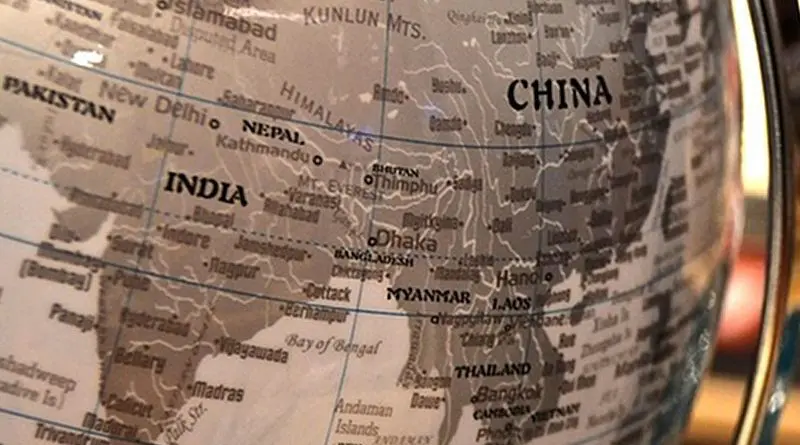SCO Summit In India: What To Expect? – OpEd
By Asad Ali
The last few days have witnessed some positive developments with regards to Indo-Pak bilateral ties. Recently, during an interview with Arabian media, PM Shehbaz Sharif said Pakistan wants comprehensive dialogues with India to resolve all the ties including IIOJK. One week after his constructive offer, New Delhi has reached out to Islamabad with an invitation to join Shanghai Cooperation Organisation Council of Foreign Minister (SCO-CFM) meeting in Goa, to be held on May 4 later this year. Though India’s invitation to Pakistan to attend SCO events in Goa has not been extended in bilateral context, the meeting of multilateral bloc does present an opportunity for both sides to engage on the sidlines.
Seemingly, the SCO moot could change the discourse of bilateral ties between India and Pakistan. Moreover, this may also be a possibility that both sides will be careful not to take any bold decisions due to prevailing political environment in both India and Pakistan. In Pakistan’s context, a new government will likely be in place later this year, while India will go for elections in 2024. By engaging Pakistan at higher level, BJP may lose its nationalist voters. Hence, major announcements regarding the peace process are unlikely. But at least a roadmap for the revival of talks could be put in place if senior diplomats meet on the side lines.
Likewise, the likelihood of detente in Pak-India relations is extremely low. Pakistan is not in a position to take any initiatives, considering its dwindling economic turmoil. In international relations, there are no permanent friends and foes. National interests always come first. Similarly, If Indian invitations are accepted, the visits, if take place, may lay the ground for some kind of engagement between the two countries. Recently, the possibility for change has now emerged with the new government in Islamabad under Shahbaz Shairf, who already desired for ties with New Delhi. Besides, over the past couple of years, the ceasefire along LoC has held, religious pilgrimages have proceeded and the Indus Waters Treaty has been observed. These developments are enough to lay the ground for better communication between two countries. But earlier this month, in remarks that were seen as an overture by Delhi, Sharif called for serious and sincere talks with Modi on burning issues like Kashmir. Simultaneously, Pakistan’s benefactor and close ally, China, lifted the block on India’s bid to list Lashkar-e-Taiba’s deputy chief Abdul Rehman Makki as a global terrorist.
These two developments were viewed positively in Delhi as a signal towards re-engagement, sources told The Indian Express. Officially, Indian establishment has maintained that there are no bilateral engagements although the two countries have been engaging with each other on multilateral platforms.
There’s huge economic potentials between India and Pakistan. India’s interest in having stronger supply chains coincides with the country’s ambitions to become a manufacturing hub, which, therefore, requires it to collaborate with the region’s major economies. Pakistan being at the crossroad of Central Asia, South West Asia and South Asia very keenly monitored the emerging regional grouping and conceived it as an opportunity to play a responsible, constructive and positive role.
The SCO is a potential platform to advance both Indian and Pakistani connect Central Asia policy. The SCO member states occupy huge landmass adjacent to India’s extended neighborhood where India has both economic and security imperatives. Importance of SCO-Afghanistan Contact Group to stabilize Afghanistan. The SCO membership provides India vital counter to some of the other groupings it is a part of. The SCO provides only multilateral platform for India to deal in close proximity with Pakistan and Afghanistan.
Despite a tense bilateral relationship, Pakistan and India have so far never allowed their differences to hinder the SCO process. Observers believe since the SCO’s main players like China and Russia don’t want the regional forum’s proceedings to overshadow the rivalry between the South Asian foes, Islamabad’s participation in the SCO events in India is a real possibility. SCO members represent nearly half of globe’s population, quarter of planet’s GDP and roughly 80% of Eurasian landmass
The SCO will provide an opportunity to Pakistan to play a meaningful role towards peace, stability, security and rehabilitation under the platform of SCO while focusing on communication infrastructure, social sector (health & education) as well as training of personnel from public sector organizations.
Consolidation of SCO in the wake of a unipolar world is a blessing in disguise for regional countries in general and Pakistan in particular. The SCO has provided a meaningful opportunity to develop confidence among the member states as well as regional countries for the promotion of peace, security and stability by addressing the irritants among intra-regional and inter regional states. Pakistan could serve as a hub for promotion of trade and energy corridor, hence possesses capability to make a yielding contribution to SCO and provide a feasible link between SCO states and South Asia.
Believing in the mutual advantages of regional connectivity, trade, and economic integration, many countries are looking to join SCO’s framework, one way or the other. For a country as committed to regional connectivity as Pakistan, SCO is an ideal conduit to advance its goals, including those that are linked to peace with India. Therefore, Pakistan should consider sending a high-level delegation while India should respond positively to any such gesture. The opportunity must not be squandered by Pakistan and India, and SCO meet can be used to kick-start the moribund peace process between two countries for greater region integration.

